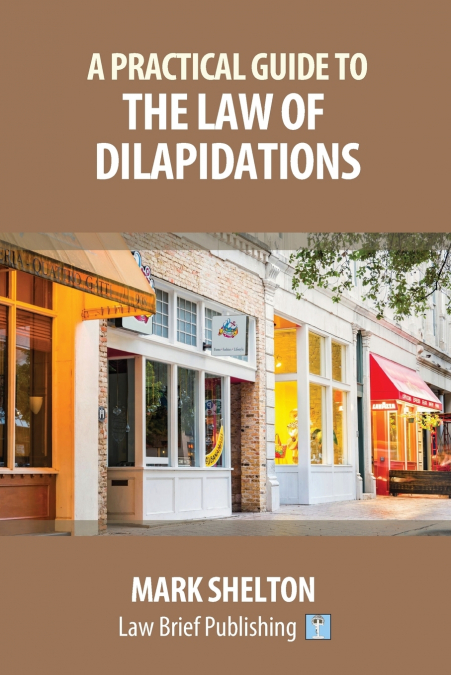
 Librería Perelló (Valencia)
Librería Perelló (Valencia)
 Librería Aciertas (Toledo)
Librería Aciertas (Toledo)
 El AlmaZen del Alquimista (Sevilla)
El AlmaZen del Alquimista (Sevilla)
 Librería Elías (Asturias)
Librería Elías (Asturias)
 Librería Kolima (Madrid)
Librería Kolima (Madrid)
 Donde los libros
Donde los libros
 Librería Proteo (Málaga)
Librería Proteo (Málaga)
‘Dilapidations’ refers to breaches of lease covenants relating to the condition of a leasehold property and remedies available to landlords in relation to them.Landlords often have an expectation that at lease-end they will obtain a financial settlement of the dilapidations liability from the departing tenant, but they need to lay the groundwork well. Plus, they need a realistic understanding of how the law requires their loss to be quantified, and limits recovery of damages in certain respects. Tenants, too, can benefit from good preparation for lease expiry, based upon a sound appreciation of the scope of their obligations.It is not purely a lease-end issue, though, since landlords will very often have the right during the lease to carry out repairs themselves, at the tenant’s expense, upon giving notice. This is a remedy with particular practical implications, and must be carefully considered by both parties. Disrepair may also make life very difficult for a tenant attempting to operate a break option.A good grounding in the basics of dilapidations law is essential for lease negotiation, as the problems experienced at lease-end have their roots in what was agreed at the beginning of the lease. There are lessons for the due diligence required before a lease commitment is taken on.This book is a practical guide to the law of dilapidations aimed at general practice solicitors and surveyors.ABOUT THE AUTHORMark practised in major commercial law firms for thirty years, specialising in property dispute resolution. He has acted for businesses large and small, including FTSE-listed property companies and household-name corporate occupiers, across the whole range of property-related issues. Among other reported cases, he acted for the successful landlord in Shortlands v Cargill [1994], an influential case on the assessment of damages for dilapidations.He is now a full-time commercial property management law trainer, putting his expertise and experience to good use in training both lawyers and surveyors. He delivers training for providers including MBL Seminars, Central Law Training, Professional Conferences, CPT Events and Solicitors Group.Mark is also the author of The Lease Guide website, which aims to provide helpful and practical guidance in an understandable and digestible format to small businesses taking a lease.